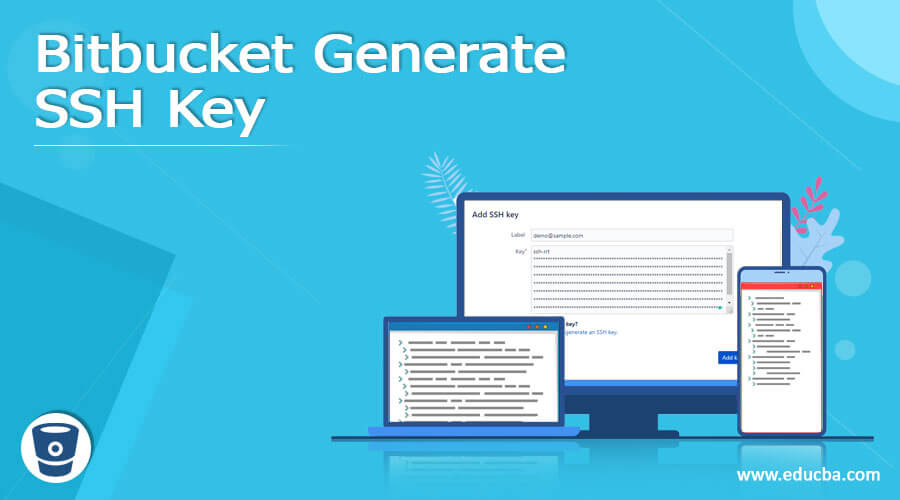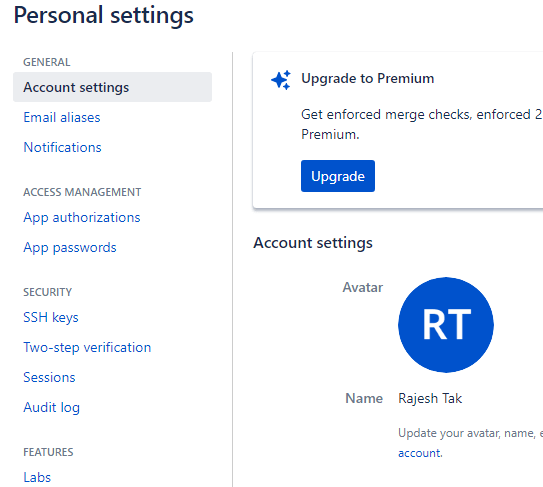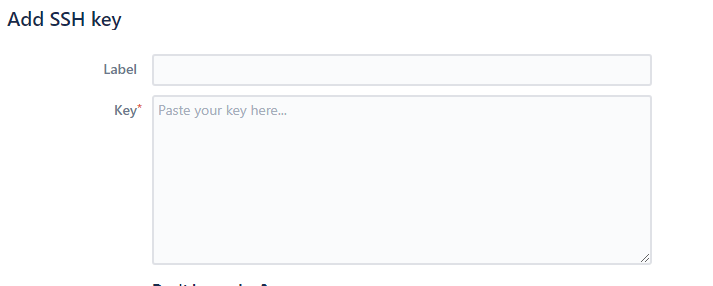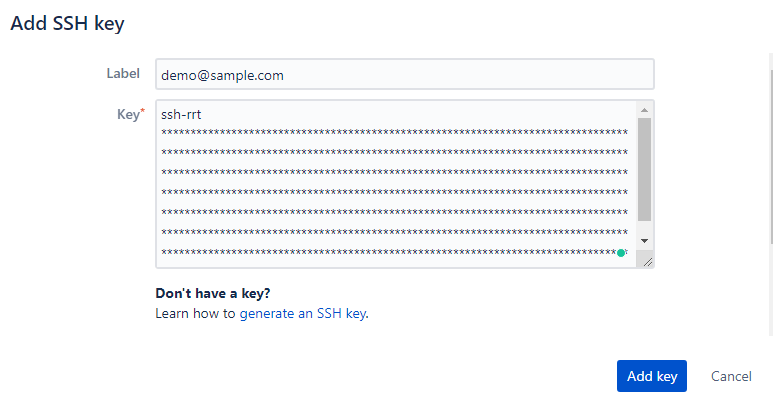Updated February 21, 2023
Introduction to Bitbucket Generate SSH Key
The following article provides an outline for Bitbucket Generate SSH Key. Generally, we understand that Bitbucket is planned for capable developers, giving the git repo facility the developer courses of action as per need. Conventionally, an SSH key establishes a strong relationship between the Bitbucket and the server. During the game plan of the SSH key, we need to make a few keys that are the private key and the public key. That private key is taken care of on the close-by machine, and the public key is moved on the Bitbucket. Later course of action of the SSH key Bitbucket confirms the crucial pair and, according to that, gives the entry. By using this part, we thwart the man in–center attacks.
Bitbucket Generate SSH Key Overviews
Generated SSH keys can be utilized to foster a protected relationship with Bitbucket Data Center and Server for:
Right when you are performing Git practices from our nearby machine. Precisely when another construction or cycle needs enlistment to vaults in Bitbucket (for instance, our make server). The SSH key should be added to Bitbucket, and our Bitbucket boss is more likely than not to lock in SSH authorization to Git documents before you can utilize the key.
To utilize SSH with Bitbucket, you make an SSH character. A person incorporates a private and a public key, a key pair. The private key lives on our nearby PC, and the public you move to our Bitbucket account. When you move a public key to our record, you can use SSH to interface with documents you own and storage spaces ensured by others, given those different proprietors give our record consent. By setting up SSH between our nearby framework and the Bitbucket server, our construction utilizes the fundamental pair to modernize insistence; you won’t have to enter our puzzling key each time you talk with our Bitbucket storeroom.
There are a couple of gigantic contemplations you want when working with SSH characters and Bitbucket.
You can’t reuse a person’s public key across accounts. So, assuming you have various Bitbucket accounts, you ought to uncover different characters and move their corresponding keys to every individual record.
You can connect various characters with a Bitbucket account. You would make various characters for a similar record if, for instance, you access a store from a work PC and a home PC. Likewise, you may make different characters to execute DVCS practices on a store with content – the substance would utilize a public key with a void passphrase permitting it to run without human intervention.
How to Generate SSH Key?
Now let’s see how we can generate SSH keys as follows.
The SSH key depends on the operating system; here, we discussed how we could generate SSH keys for windows.
First, we need to check the existing ssh keys on our local machine; here, we can utilize the existing ssh key with Bitbucket if required; otherwise, we can go for the command line and run the following command as follows.
cd *specified user profile*.ssh
If we don’t have a file or directory, then we need to create it, and if you have an existing key, then we need to execute the following command.
dir id_*
In the second step, we need to back up the SSH keys. If you have existing SSH keys but would rather not use them when associating with Bitbucket, you ought to back those up. For backup, we need an SSH key id.
We can now generate an SSH key using the following command line command.
ssh-keygen –t specified key – c "specified email id"
After execution, we get the repose with a public or private key pair.
Creating Bitbucket Generate SSH Key
Now let’s see how we can create a Bitbucket SSH key.
We have a substitute method for adding the ssh key as follows.
The screen capture shows the individual setting menu under which we have security choices.
We have the SSH key tab; now click on the SSH key tab, after clicking on the SSH key tab, the following screen shows.
0.
We want to tap on the Add key button to enter the name and Key according to our necessity, as displayed in the accompanying screen capture.
Assuming we don’t have an SSH key, then we want to produce an SSH key. The accompanying screen capture shows the mark and key as follows.
Presently click on the Add Key button. An SSH key is effectively added to the current working catalog, as displayed in the accompanying screen capture.
Configuring Bitbucket Generate SSH Key
Now let’s see how we can configure the generated ssh key.
First, we need to set up all the default identities by using the command line with the $ssh-keygen command.
In a second step, we need to add the key to the ssh-agent by using the ssh-agent command.
In the third step, we need to add the public key to your respective account through a personal setting.
Configuration of ssh keys depends on the operating system; here, we discussed configuration for windows as follows.
- First, we must open the git terminal and enter the ssh-keygen-t rsa command with the respective email id.
- Now hit enter with blank space.
- Now copy the id of file content from .ssh that is placed on the system.
- We need to log in to the Bitbucket account, pest the keys, and save it.
- Now run the git init command and add the ssh git repository per our requirement.
Conclusion
We hope you learn more about the bitbucket generate ssh key from this article. From the above article, we have taken in the essential idea of the bitbucket generate ssh key, and we also see the representation and example of the bitbucket generate ssh key. Furthermore, this article taught us how and when to use the bitbucket to generate ssh keys.
Recommended Articles
This is a guide to Bitbucket Generate SSH Key. Here we discuss the definition, how to generate and create an SSH key, and Configuring bitbucket to generate an ssh key. You may also look at the following articles to learn more –





